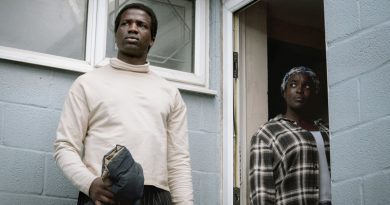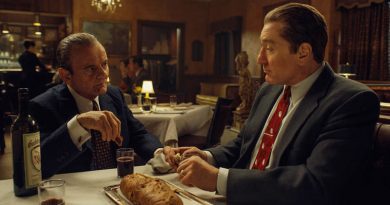Are You Not Entertained?!: Echoing Ridley Scott’s Thrilling Epic of Gladiator
Ridley Scott’s works may have been inconsistent, but when he’s on form, we got occasional hits with some of them even stood the test of time, such as Alien, Blade Runner, Thelma & Louise and Gladiator. The latter, first released in 2000, made its mark for reviving the sword and sandal epics — the subgenre that used to dominate Hollywood, particularly the 1950s and ’60s era. The monumental period that gave us movies like Ben Hur and Spartacus before the sword and sandal epics finally stumbled with costly flops such as Cleopatra and The Fall of the Roman Empire.
Like the cycle of life, it was a matter of time before the long-dead subgenre made its grand comeback decades later when Scott took the challenge of directing Gladiator. The result? The US$103 million gamble paid off well when it collected over US$460 million worldwide during its initial theatrical run. The movie even garnered an impressive 12 Oscar nominations and brought home five awards including the coveted Best Picture, winning over stiff competition like Traffic (my personal favourite to win instead) and the groundbreaking Crouching Tiger, Hidden Dragon and Best Actor for Russell Crowe.
The enduring success of Gladiator lies in many factors, one of which is Scott’s modern sensibility in his direction that appeals even to contemporary audiences. Working from David Frazoni, John Logan and William Nicholson’s screenplay, Scott keeps an assured pace throughout its epic 155 minutes. He grabs the audience’s attention right from the get-go as he establishes Russell Crowe’s Maximus Decimus Meridius as a no-nonsense Roman general preparing for battle against the Germanian tribes in 180 AD.
The scene itself was shot on location in Bourne Woods, Surrey, where Scott made use of the place to mount a large-scale battle sequence, complete with hundreds of extras and thrilling action-packed moments of flying arrows, catapults, horseback charges and clanging swords. The forest fire during the battle was actually done for real because the Forestry Commission was already intended for partial deforestation, allowing Scott to ask for permission so he could “burn it to the ground“. This adds realism to the memorable opening sequence accentuated by Hans Zimmer and Lisa Gerrard’s riveting score.
Scott doesn’t skimp over the violence and brutality with his camerawork alongside John Mathieson’s atmospheric cinematography echoes the distinct look and style of Saving Private Ryan-like choppy and stuttering visuals, giving the battle scene a heightened sense of grittiness and urgency.
Back to Crowe’s Maximus, he serves the heart and soul of Gladiator and how his character’s unforgettable line first commanded his loyal soldiers, “At my signal, unleash hell“, making sure everyone is in their positions and ready for attack. His firm grasp on organising and succeeding in the battle has impressed Marcus Aurelius (Richard Harris), the Roman emperor who treats him like his son. Even more so than his own flesh-and-blood, Commodus (Joaquin Phoenix), the young prince who later despised his father’s decision of wishing Maximus to succeed him in the hope of restoring the Roman empire. Marcus still feels his son isn’t qualified to rule Rome, forcing the latter to murder his father and quickly declare himself the new emperor.
“Your emperor asks for your loyalty, Maximus. Take my hand, I only offer it once.”
Maximus refuses and shuns Commodus’ demand, a result that has him arrested and sentenced him and his family to death. The story subsequently resonates well with audiences as the horrible death of Maximus’ family triggered his anger and determination in his quest for vengeance. The whole revenge angle becomes his prime motivation to stay alive, even though he has to go through the ordeal of being sold to Antonius Proximo (Oliver Reed), who trains him and the rest of the slaves as gladiators. His initial reluctance to fight in the arena soon garners popularity after he helps other gladiators win the battles.
His victory eventually leads him to the Colosseum, where he battles alongside others, one of which played by Djimon Hounsou as Juba, in a gladiatorial fight surrounded by the mass spectators cheering in the amphitheatre. The Colosseum scene itself reportedly took seven months to build the replica aided by the state-of-the-art, Oscar-winning visual effects. Scott deserves mention for giving it an established shot of the Colosseum, capturing its majestic architecture in a 360-degree camera angle from the ground perspective. Among the main spectators in the Colosseum include the new emperor, Commodus along with his sister and Maximus’ former lover Lucilla (Connie Nielsen) and his young nephew, Lucius (Spencer Treat Clark).
The action in the gladiatorial arena continues to immerse in its raw intensity. Zimmer and Gerrard’s score soars each time the stakes rise, at one point, Scott even goes as far as using real tigers instead of fully CG animals, combining the brilliant use of split screen and green screen to make them look as if these tigers are in the same space with the gladiators fighting the battle. The performances help to strengthen the movie and it isn’t just Russell Crowe’s Oscar-winning lead turn who excels as Maximus.
Gladiator also features solid support all around, notably Joaquin Phoenix’s antagonist turn as the ruthless Commodus — a role that earned him a well-deserved Oscar nomination for Best Supporting Actor, even though he lost to Benicio del Toro for Traffic. Scott also took the risk of resurrecting Oliver Reed, who unfortunately died midway through production, with the combination of CGI and body double used as a stand-in for the late actor. It may have been a controversial decision but it somehow works well that honour the late actor’s final performance without looking awkwardly misplaced.
Gladiator is undoubtedly one of Scott’s best directorial efforts and the influence of this movie has since opened the doors for more sword and sandal epics throughout the 2000s, though with varying degrees of success from Troy to King Arthur, Alexander and the director’s own Kingdom of Heaven. I always see Gladiator as a one-off movie, the kind that doesn’t need a follow-up because this would typically either mean a cash grab or a nostalgia bait. And yet, twenty-four years after the first movie rose to success and Oscar glory, Scott feels the need to revisit his 2000 hit with an unlikely sequel.





